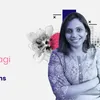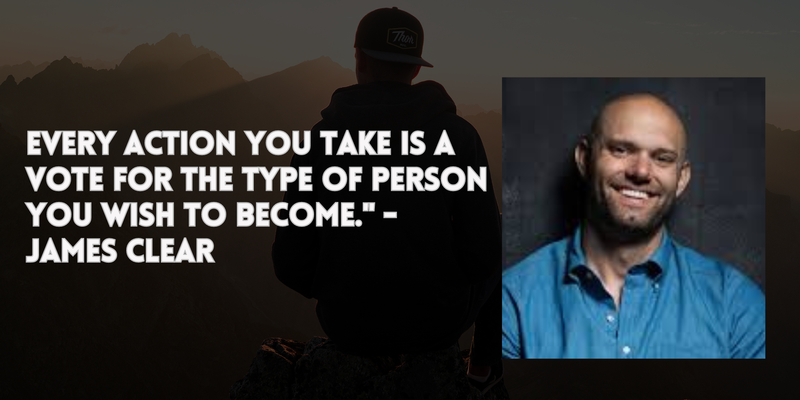[100 Emerging Women Leaders] Meet the doctor using AI for early detection of colon cancer
In this feature of 100 Emerging Women Leaders, we feature Dr Sravanthi Parasa, who is working to marry medicine and technology to create greater impact and ensure better patient outcomes.
As a student, Sravanthi Parasa liked mathematics and science equally.
“But I was intrigued by how you can bring technologies into medicine to make it more realistic. Sometimes we tend to be very fixed in our paths, but COVID has taught everyone to think beyond the norm,” says Dr Sravanthi in a conversation with HerStory.
She works closely with the Alan Institute of Artificial Intelligence, and is working to help trace colon cancer, easier and faster. Today, Sravanthi is also the chair of the COVID-19 Ad Hoc Committee at World Endoscopy Organisation.
“Today, tech is being used in health. Wearables, smart watches, and smartphones detect your heart rate, pulse, monitor your sleep. The big tech already knows what you eat, where you eat, how you eat, your lifestyle.
"There already is a lot of data, which should be used to help detect diabetes, cancers, and other deadly diseases. Currently, as a physician while I have access to a lot of data, I have no understanding of this. There is no analysis being done. So a part of my work is towards that,” she says.
Sravanthi believes this holds true even for finding the right medical literature from published journals, expounding that a Google search offers answers to most queries but accessing medical literature is difficult.
So, instead of Google offering details from random blogs, what if it could pull information from specific papers and medical literature vetted by peers and experts? All that data is hiding in a silo in a pdf format, which is hard even for physicians to access.

Sravanthi Parasa, image credit: Twitter.
The responsibility of being a doctor
Sravanthi double majored in public health and epidemiology from University of Washington, and did her residency at Georgetown. It was during her scholarship as a research fellow that she worked with the division of public health, which looked at injury prevention.
“We used a lot of information on how to look at policy within the US, how do you pass a law within the US. We also dealt with healthcare and statistics. The goal was how do you pass a seat belt law in one of the states in the US. We linked information from police data, on seat belt injuries, the impact it would have economically - that was my research that had to be presented to the senate,” she recalls.
Sravanthi says it was only when she came to the US for her master’s and residency that she realised the enormity of becoming a doctor.
“We are very young when we start medicine in India. I don’t think we have the maturity to understand the responsibility and what goes into the whole process. In the US, people finish a bachelor’s degree and only then join the medicine course. They do the mandatory volunteer process; they check how you are as a well-rounded person, not just your scores. Some even do master’s in computer science or other tech to show a passion for medicine. And why is medicine important?” she says.
As a gastroenterology fellow, Sravanthi had a deep knowledge of endoscopies, colonologies, and other methods of studying the GI tract and detecting specific risk factors. Her interest led her to look at marrying medicine and technology.
Endoscopies are extremely important, and the camera that looks inside the GI tract has to be able to capture all the lesions to ensure proper detection. If the person isn’t paying attention or misses a lesion, there can be a misdiagnosis.
Detecting risk factors
Sravanthi says colon cancer is the second most common cancer, and the third most common cause of death in the western world. While colonoscopies can detect colon cancer, a lot of lesions are often missed in the initial colonoscopy.
“This is where I diverge into technology. One of things we are working on in the subjectivity of the diagnosis or in missing out lesions is using AI. Like the camera uses face recognition, the same principles can be used within the luminal chart of the GI system. One of the first algorithms for detecting pre-cancerous lesions in colon cancer has been approved.
"I’ve been involved in bridging the gap between the technologist and what we need. I serve on several gastro-intestinal society boards, where we direct 16,000 gastro-enterologists around the world on the next guidelines and how this can be used in the practice,” she says.
Apart from detecting cancers, Sravanthi also believes that big data and ML algorithms can be used to detect early onset of colon cancer. This is important as there has been a significant increase in the early onset of colon cancer in the western world.
“We don’t know why it is increasing. The easy answer would be lifestyle, diet etc. but to get a quick understanding of population health we now have access to big data. Big data uses ML algorithms to pinpoint risk factors. There is a lot of tech and data out there; my goal is to bring it to medicine and apply it to patient care to improve outcomes,” she says.
She cites an example, stating that a patient with blood in their stool is high risk for colon cancer. But not everyone who has that symptom has cancer. AI and ML help understand which patient’s profile puts them at a higher risk.
Of technology and medicine
“Each person’s risk factors are unique to them. Today, we have access to a lot of data - demographics, co-morbidities, medical history, family history, and genomics. Bringing in what we see on endoscopy and data, we can tell the person what their risk is, their thresholds. The biggest challenge to me has been bridging the gap between physicians and technologists. I don’t know how to code in ML nor am I data scientist. Trying to understand what is going out there, and how it can translate to patient care is important,” she says.
Sravanthi believes AI isn’t independent, in medicine at least. She says it will not replace doctors, but aid them and ensure there is always objective data to guide treatment.
Advising all young entrepreneurs and women entrepreneurs, she says, “When you believe in your ability you have to push forward. And nobody can stop you. It will be a few harder steps, but you will get there.”
YourStory’s flagship startup-tech and leadership conference will return virtually for its 13th edition on October 25-30, 2021. Sign up for updates on TechSparks or to express your interest in partnerships and speaker opportunities here.
For more on TechSparks 2021, click here.
Applications are now open for Tech30 2021, a list of 30 most promising tech startups from India. Apply or nominate an early-stage startup to become a Tech30 2021 startup here.
Edited by Teja Lele





![[100 Emerging Women Leaders] Meet the doctor using AI for early detection of colon cancer](https://images.yourstory.com/cs/4/a9efa9c02dd911e9adc52d913c55075e/100-EW-1630565743559.png?mode=crop&crop=faces&ar=2:1?width=3840&q=75)






